The Youngest Refugee Taekwondo Practitioner in the World
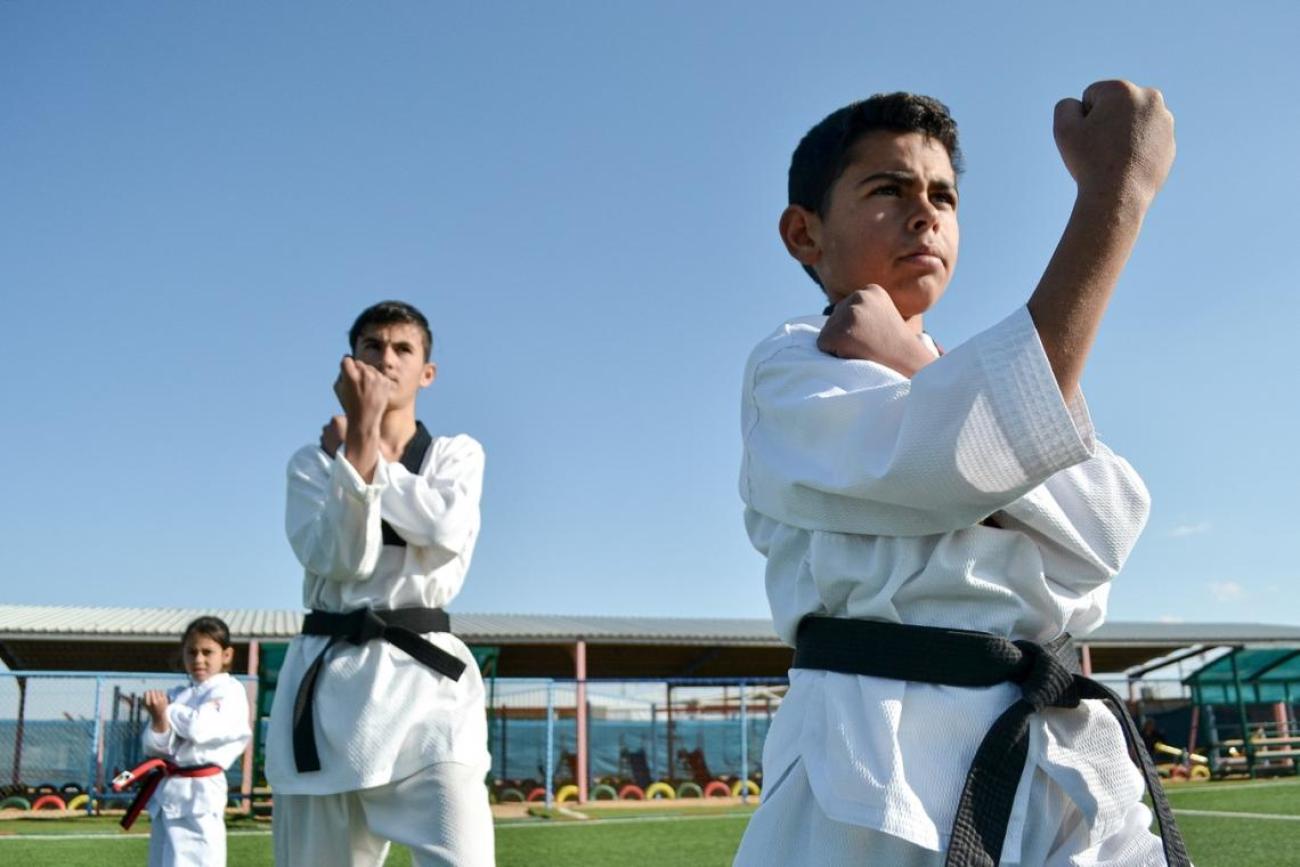
Shaping a better future with Taekwondo
“I like Taekwondo as it makes me feel confident and strong, it also helps one to be more disciplined.” says Mohammad.
“As a Taekwondo player, I learnt a lot throughout the years, I learnt to be more accepting, and more understanding of what it means to win and lose.”
Mohammad is a 45-year-old Syrian refugee from Aleppo, Syria who has been living in Azraq Camp since 2016 and has been a Taekwondo practitioner for 18 years now. He is currently a Sports facilitator at a Makani centre in the camp and a trainer in the newly built gym in the camp as well.
Having lived between Syria and Jordan before the crisis, Mohammed started practising Taekwondo in Amman. “We used to enjoy a normal life in Aleppo, when the clashes started, we couldn’t stay, it was impossible, we had to seek refuge in Jordan, so we can in a way feel safe again.”
Mohammad and his family had to stay on the border for around 6 months before moving to Azraq camp, his youngest child was Dua’a back then (who is now a Taekwondo player). “It was a hard time for us, we didn’t know what was going to happen next,” added Mohammad.
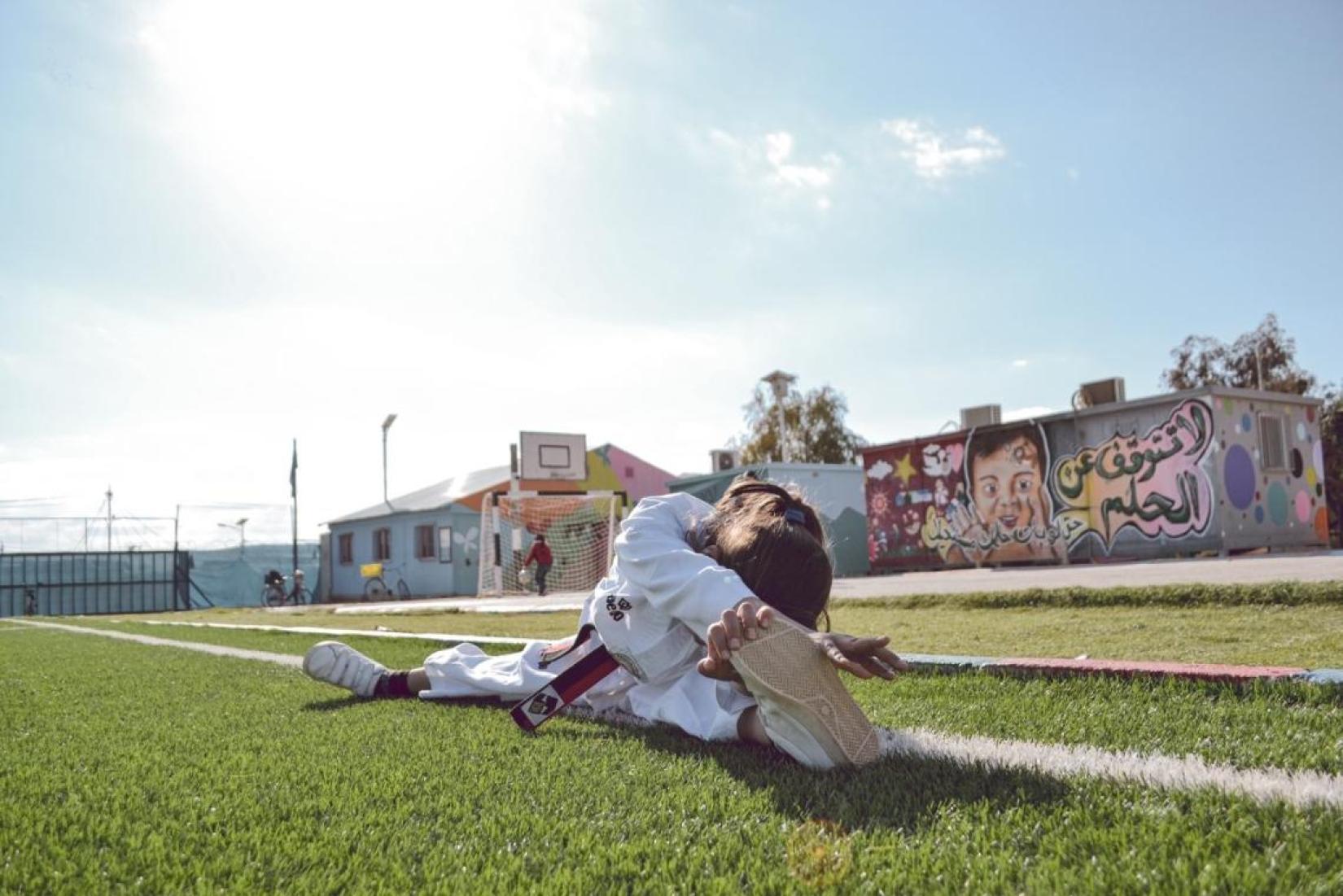
As the kids had plenty of free time when they first arrived, Mohammad thought he should benefit from that time training them, he thought this could be something useful for the kids’ future. Mohammed’s daughter, Dua’a is the youngest refugee in the world to be awarded a black belt in taekwondo, at just 6 years old.
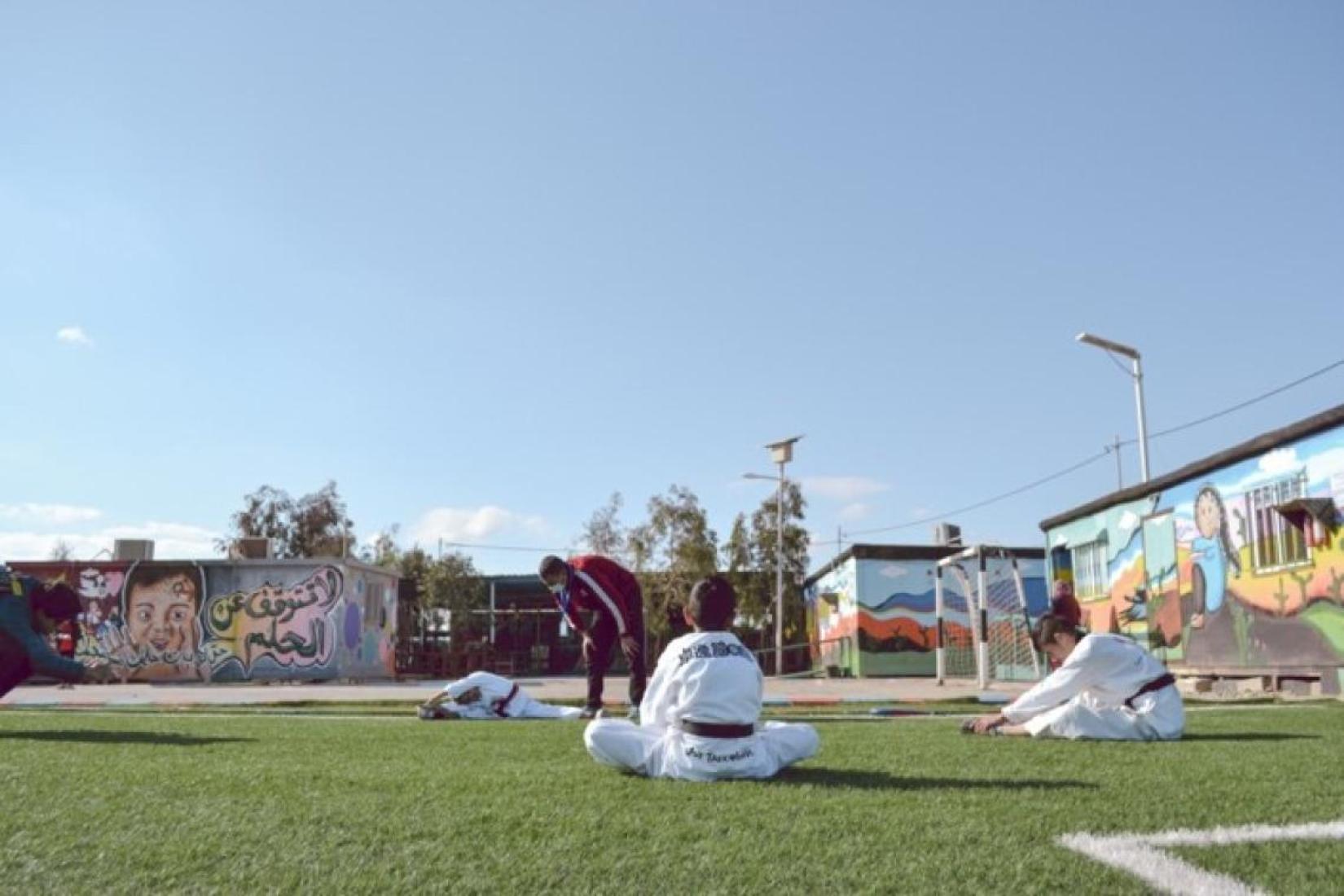
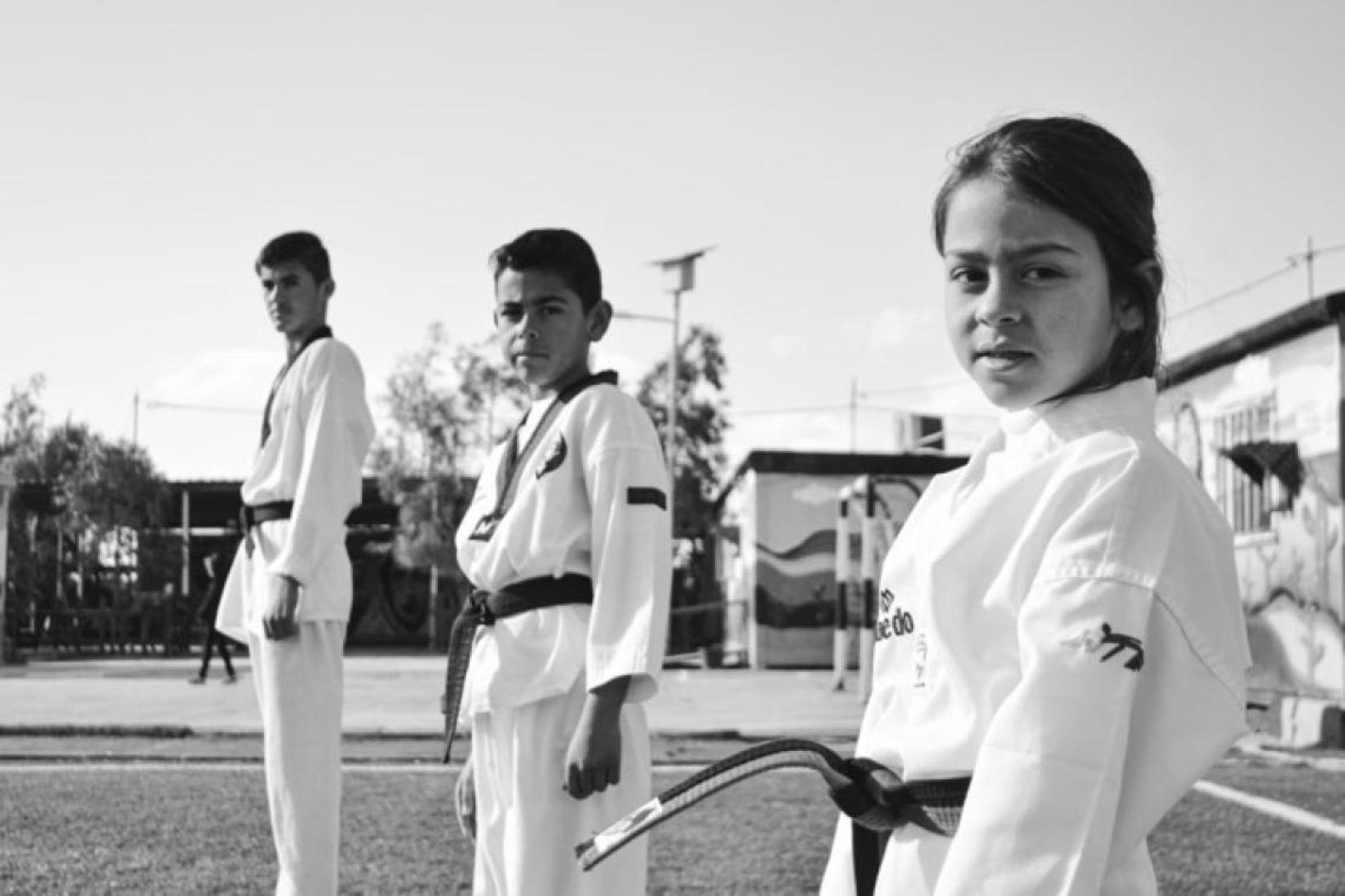
Mohammad thinks that Taekwondo is very important for the kids, as it helps them to be more confident, improve their personalities, and helps them to be fit and active.
“My older kids, they all go to Makani. They first started training in Taekwondo there and I’m grateful they had this space to begin their journey. Eventually they outgrew the training here and I wanted something bigger for them, that’s why we were from the very first people to enrol in the Azraq Taekwondo Academy when it first opened.”
Makani ('My Space') is an integrated programme that links interventions in education, child protection, adolescent and youth engagement and participation. The Makani programme provides comprehensive services to marginalized and vulnerable children and adolescents aged 0-18 years and their caregivers in a safe environment all around Jordan.
UNICEF-supported Makani centres not only provide a safe space to develop upon essential school subjects such as Arabic, English and Maths, but also gives children and young people a chance to find new passions and interests within a variety of extracurricular activities, such as drama classes, music and sports.
Thanks to the generosity of the German Development Cooperation (BMZ/KfW), the European Union, the Republic of Korea, and the Abdul Aziz Al Ghurair Refugee Education Fund, Makani centres can continue to offer such services to vulnerable young people in Jordan.
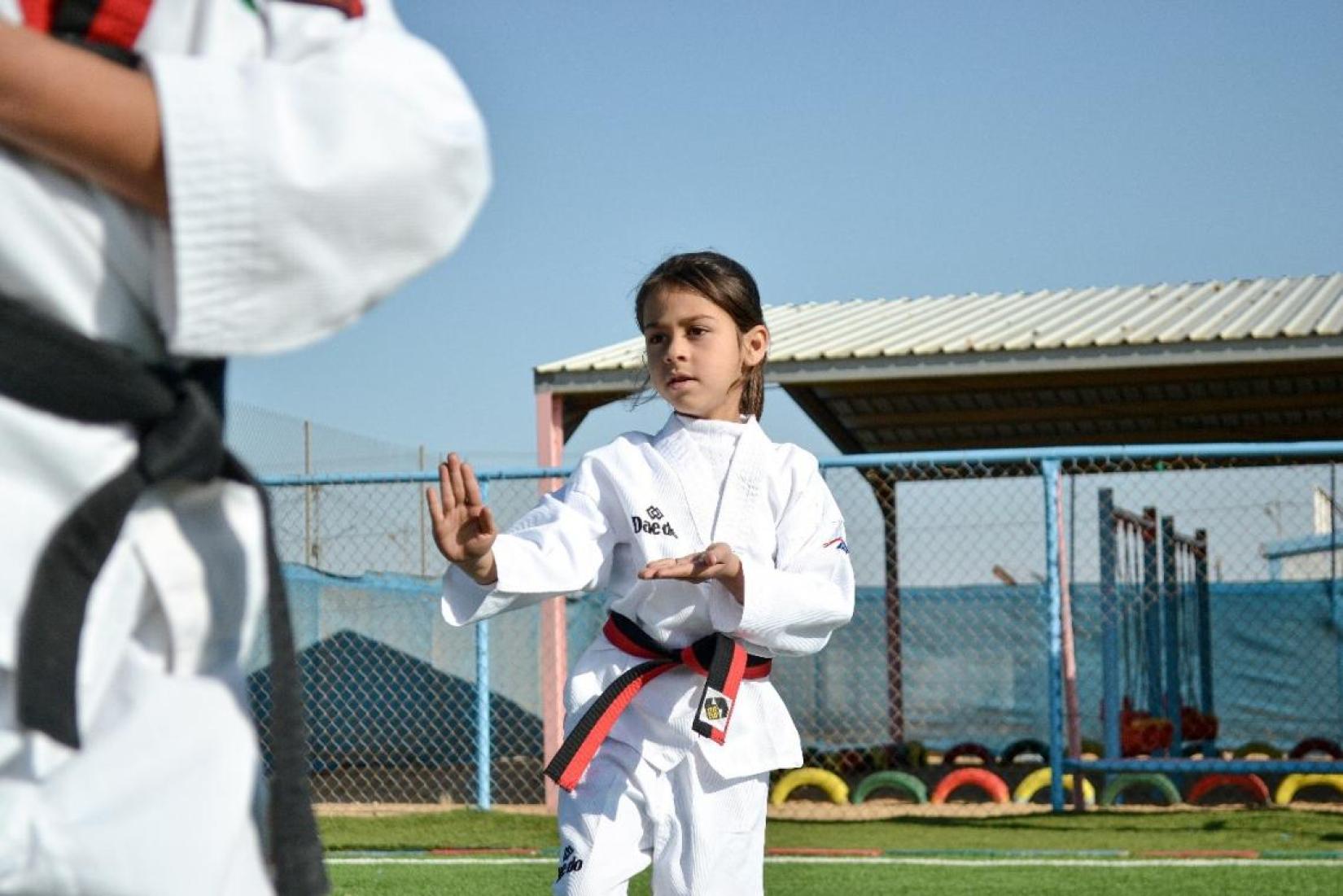
The COVID-19 lockdown initiated a temporary closure of Makani centres on the 15th March 2020, with facilitators working remotely. To ensure that children and parents remained supported and were not losing out on vital educational support services, Makani activities were digitized. By September 2020, UNICEF received the green light from the Jordanian government to reopen Makani centres around the country, while ensuring social distancing in classrooms and maintaining all COVID-19 safety and protection procedures.
“It was really hard when the centres closed previously due to the pandemic, the kids had no place to express themselves, learn or play, they were in the streets most of the time. Some people wanted to make a good use of their kids’ time back then, they helped them to gain some skills like painting or sports,” Mohammad added.
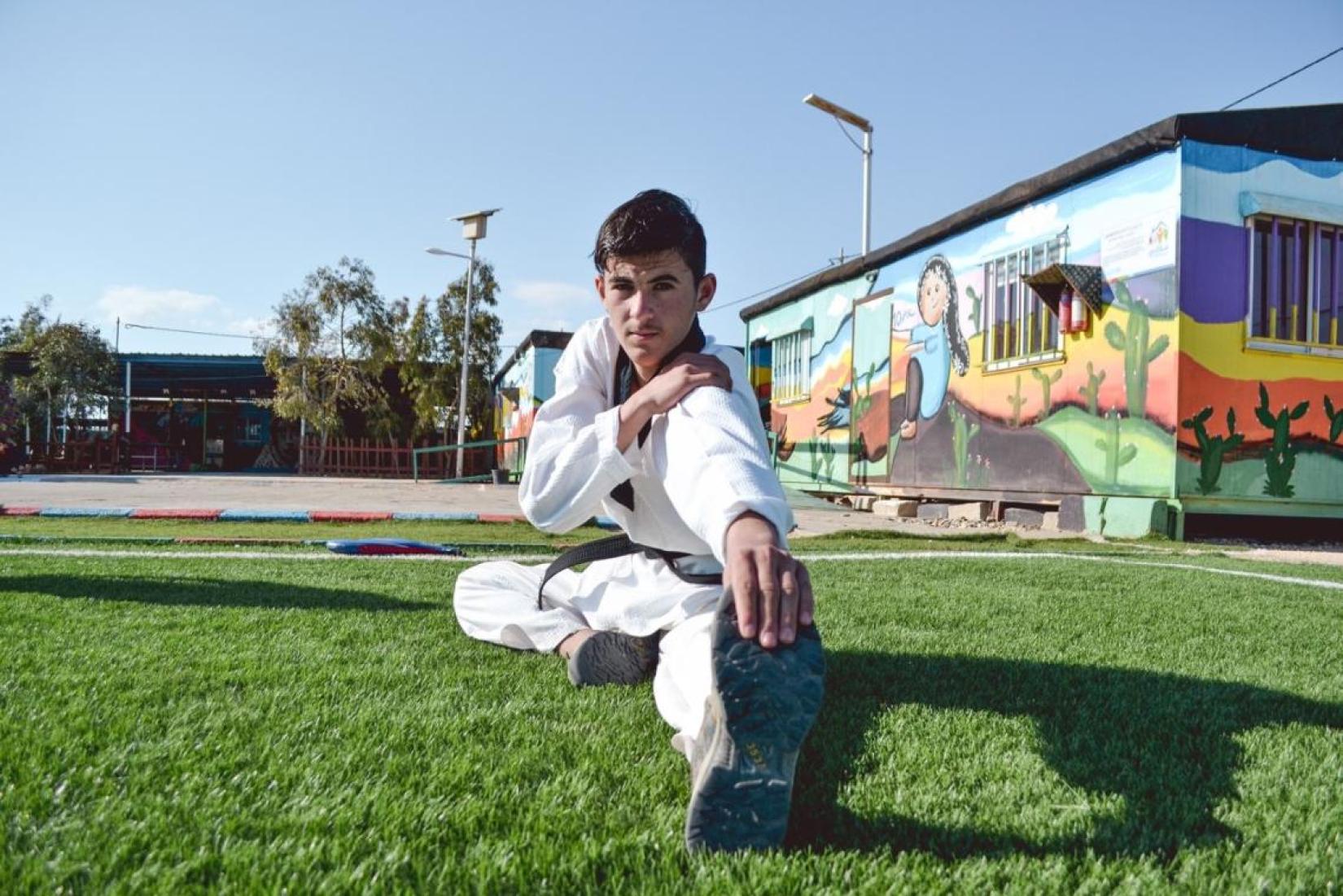
Othman, 15, Mohammed’s eldest son spoke to us about his experience as well, “when I first started training, I didn’t take it seriously, I was a little boy and I didn’t care much. But now, I can see how important Taekwondo can be for my future in case I want to be a professional player, it has also helped to shape my personality and to help me improve.”
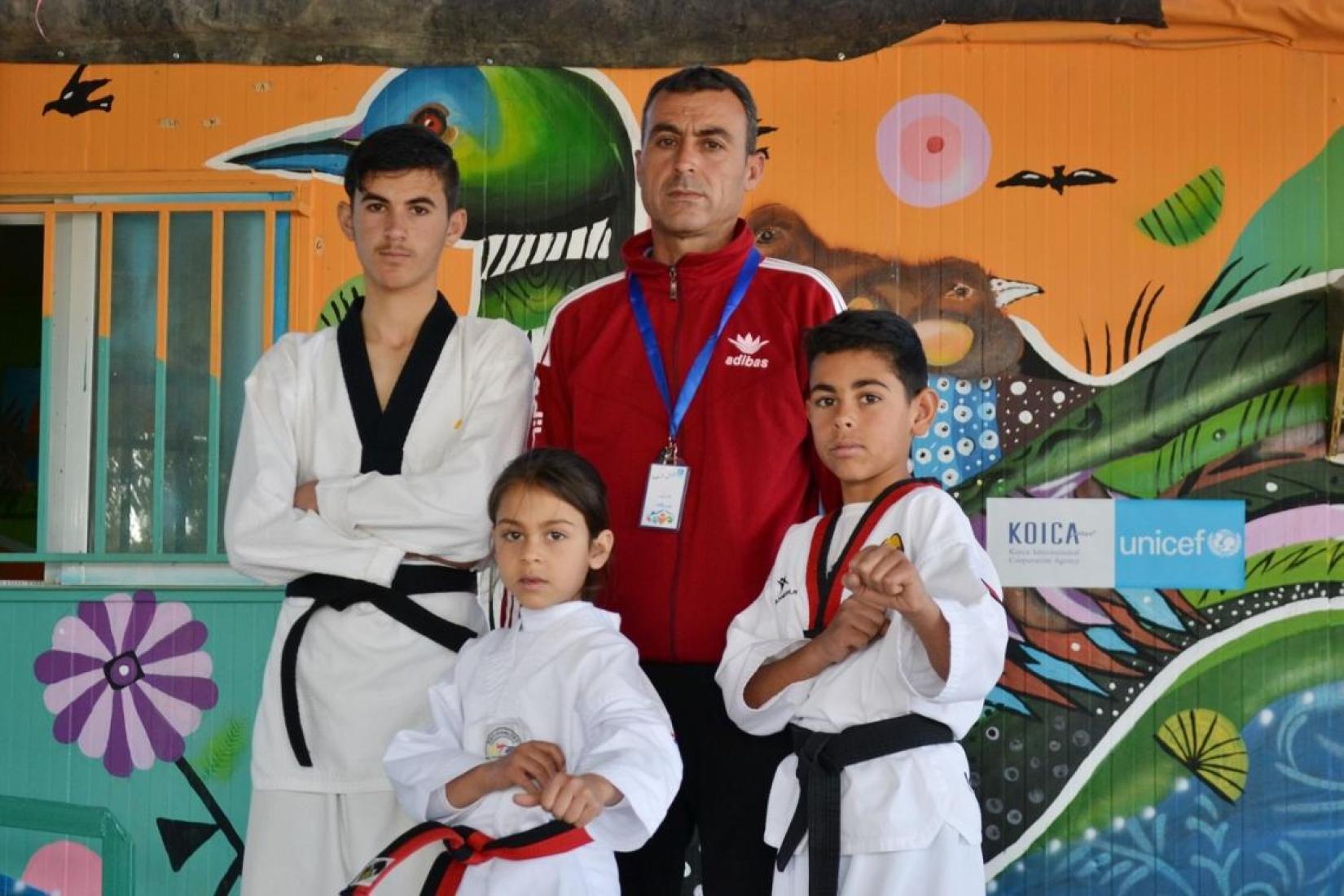
Without the kind generosity of our partners, German Development Cooperation (BMZ/KfW), the European Union, the Republic of Korea, and the Abdul Aziz Al Ghurair Refugee Education Fund, children would not have a safe space to develop their skills and participate in non-formal educational activities in Makani centres in Jordan.

